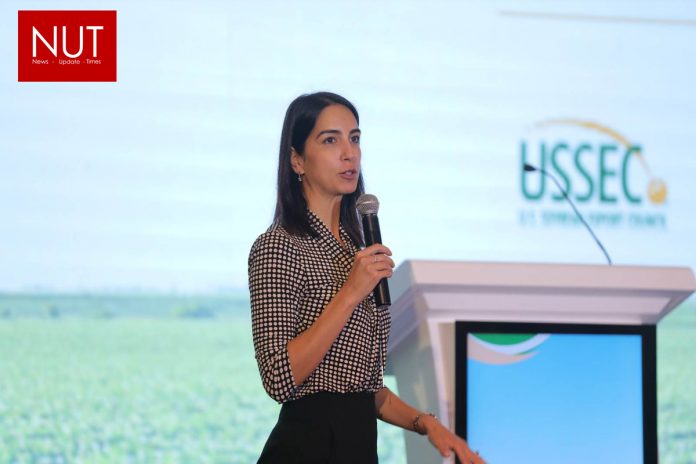ZAHID CHUGHTAI
Home to 1.9 billion people, South Asia one of the world’s most populous regions and with the second-highest number and proportion of the world’s extremely poor needs both food security and sustainability.
Increased population growth, climate change (drought and floods), declining productivity and low income/poverty coupled with some other issues warrant that moving beyond awareness about sustainability; the region should implement it both in agriculture and industries.
This was the crux of a one-day conference called ‘Sustainasummit’ arranged by the U.S. Soybean Export Council (USSEC).
Speakers stressed the need for making the most efficient use of non-renewable resources, and on-farm resources and integrating, where appropriate, natural biological cycles and controls. “Sustainable agriculture is farming in such a way to protect the environment, aid and expand natural resources and to make the best use of non-renewable resources”, said Lucas Blaustein Regional Agricultural Attaché U.S. Department of Agriculture. He said USDA was working for satisfying human food and fibre needs, enhancing environmental quality and the natural resources based upon which the agriculture economy depends. Make the most efficient use of non-renewable resources and on-farm resources and integrate, where appropriate, natural biological cycles and controls. Sustaining the economic viability of farm operations besides enhancing the quality of life for farmers and society as a whole, he added. Commenting on the success of the summit, Kevin Roepke, Regional Director, South Asia & Sub Sahara Africa, USSEC, said, “We believe that sustainability is a critical issue that requires collaboration and action from all sectors of society and the Sustainasummit is an important step in promoting sustainable practices and inspiring the much-needed change. He said they have also launched a programme called ‘Right to Protein’ in Pakistan that focuses on creating awareness about the nutritional benefits of protein in diet.
Deeba Giannoulis, Head of US Soy Marketing at USSEC, South Asia, said the good agricultural practices adopted by the U.S. Soy farmers succeeded in reducing the greenhouse gas (GHG) emissions per bushel by 43 percent, improved irrigation water use efficiency by 60 percent, increased land use efficiency by 48 per cent and improved energy use efficiency by 46 per cent. At the same time, U.S. Soy farmers improved soil conservation by 34 per cent and increased soy production by using roughly the same amount of land.
Eresha Mendis (PhD), Professor of Food Science & Tech Faculty from Sri Lanka speaking about food security and South Asia, called for promoting good agricultural practices to ensure efficient production to face the food security crisis and proposed to go for innovations to increase production and productivity (mechanization and biotechnology), use of improved varieties/breeds, timely application of quality agricultural input supplies, ensuring readiness to face climatic impacts and building farm to market networks. She also emphasized building private-public partnerships in the agricultural and food sectors.
Prof. Eresha advocated biotechnology for increasing agricultural productivity and saving grains by reducing pre-harvest losses to plants occurring due to diseases or pests and by reducing the amount of post-harvest losses. She said food insecurity has health, economic and social impacts, so science-based decision-making should be done that suits the country’s context to ensure food security.
George Chamberlain, from the Global Seafood Alliance stressed the need for a fundamental transformation to produce more with fewer resources. Food production systems account for about 25 per cent of global GHG emissions. In his opinion to increase production by 50 per cent, farmers cannot simply expand existing systems without huge climate change impacts as well as biodiversity loss, soil loss and habitat destruction.
Rida Amjad communication officer of UNDP in Pakistan said Pakistan was 7th vulnerable country to climate change in the world and trying to overcome the challenges set by the pandemic, economic crisis, political instability and the 2022 floods.






